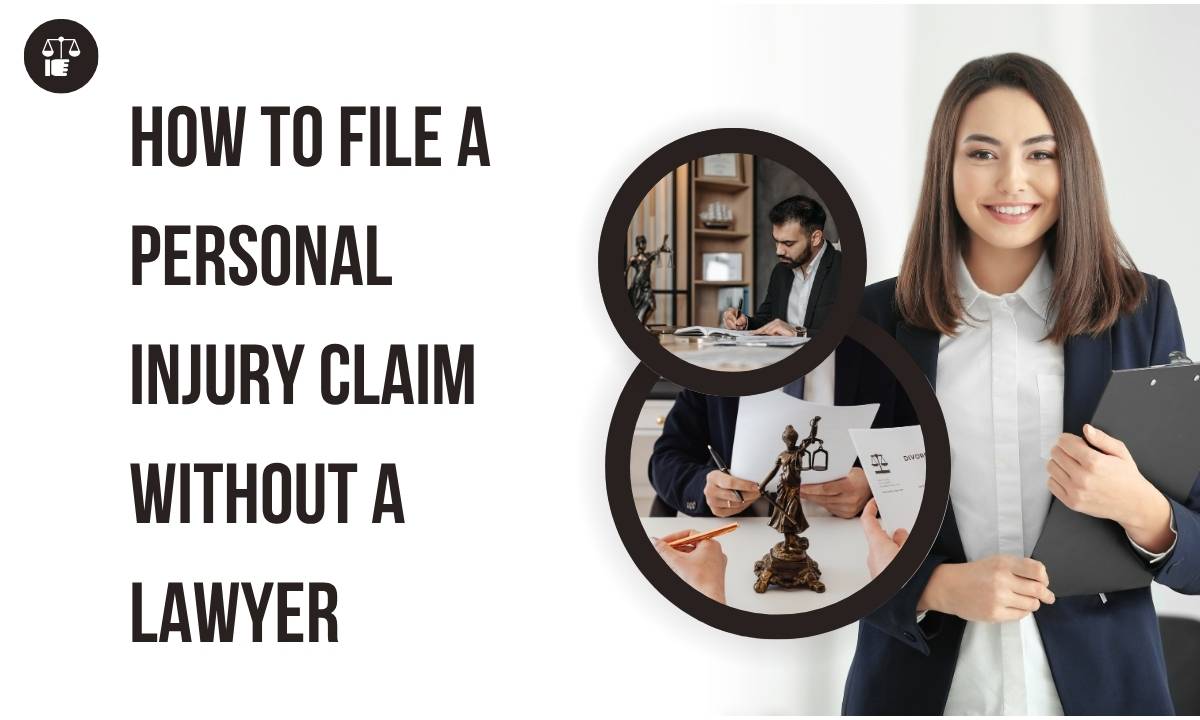Filing a personal injury claim can seem overwhelming, especially without the assistance of a lawyer. However, in many straightforward cases involving minor injuries or property damage, individuals may choose to handle their claim independently to avoid legal fees and maintain full control over the process. The key to a successful self-filed injury claim is understanding the steps, timelines, documentation, and communication techniques required to reach a fair settlement. With organization and persistence, it’s entirely possible to secure compensation without legal representation.
Many people opt to handle their personal injury claims alone due to concerns over attorney costs, especially when the damages are not substantial enough to justify a lawyer’s contingency fee. In addition, dealing directly with insurance companies may result in quicker settlements if the case is not complex. However, filing on your own demands careful planning, a thorough understanding of your rights, and accurate record-keeping. Before you begin, it’s crucial to educate yourself on the legal standards and responsibilities involved in your particular case.
Determining Whether You Have a Valid Personal Injury Case
Before initiating a claim, you must establish that your case meets the basic criteria of a personal injury claim. This includes proving that another party was at fault due to negligence or intentional harm, that their actions directly caused your injuries, and that you suffered measurable damages such as medical expenses, lost wages, or emotional distress. Without these essential components, your claim may be dismissed. Assessing the strength of your case early will help avoid wasted effort and ensure your time is used effectively.
Gathering All Necessary Evidence to Support Your Claim
Proper documentation is the cornerstone of a successful personal injury claim. This includes medical records, hospital bills, prescription receipts, accident reports, witness statements, photos of injuries or property damage, and correspondence with insurers or other parties. Start collecting evidence immediately after the incident. The more detailed and organized your documentation, the stronger your position will be when negotiating with the insurance company or, if needed, representing yourself in court.
Calculating Damages and Determining a Fair Settlement Value
Understanding the financial value of your injury is crucial for negotiating a settlement. This includes both economic damages, such as medical expenses and lost wages, and non-economic damages like pain and suffering. Review all related expenses and consult medical providers if necessary to estimate future costs. Be realistic and fair in your valuation—exaggerated demands can damage your credibility and hinder negotiations. Use available online tools or claim calculators to get a sense of what similar cases have settled for.
Communicating Effectively with the Insurance Company
Once you have documented your damages, you will need to draft a demand letter to the at-fault party’s insurance company. This letter should clearly outline the incident, the extent of your injuries, the financial impact, and your demand for compensation. Be professional and concise. After submission, be prepared to negotiate. Insurance adjusters may offer lower settlements initially, but you can counter with justification based on your documented losses. Always remain calm and assertive, avoiding emotional language.
Negotiating a Settlement Without Legal Representation
Negotiating a personal injury settlement requires preparation and patience. When the insurance company makes an offer, evaluate whether it fairly covers your medical bills, lost income, and other damages. If the offer is too low, respond with a counteroffer and supporting documentation. Keep records of all communications. Be willing to compromise but never settle for less than what your documented losses justify. If you reach a fair agreement, get it in writing and understand the release terms before accepting payment.
Knowing When to Consider Mediation or Small Claims Court
If negotiations stall or the insurance company refuses to offer a reasonable settlement, you may consider filing your claim in small claims court or pursuing mediation. Small claims courts are designed for individuals representing themselves and usually handle cases involving limited monetary damages. Mediation offers a neutral third party to help both sides reach an agreement. These alternatives can provide resolution without the expense or complexity of hiring a lawyer or going to a full trial.
Understanding Deadlines and the Statute of Limitations
Every state has a statute of limitations that restricts the time you have to file a personal injury claim. Missing this deadline will likely result in the loss of your right to seek compensation. Typically, the clock starts on the date of the injury or when the injury was discovered. Make sure you know your state’s specific timeline and adhere to all legal filing deadlines. Acting promptly protects your rights and strengthens your position during settlement discussions.
Finalizing the Claim and Signing a Settlement Agreement
Once a settlement has been reached, the final step involves signing a release form. This document states that you accept the payment and will not pursue any further legal action regarding the incident. Read the terms carefully and ensure the agreement covers all aspects of your claim. After signing, the insurer will typically issue payment within a few weeks. Store copies of the settlement and all related documents securely for future reference.
Final Thoughts
Filing a personal injury claim on your own may seem daunting, but it’s entirely manageable with the right approach. Careful documentation, honest communication, and a clear understanding of your rights are the foundations of a successful self-managed case. By educating yourself, preparing thoroughly, and staying organized throughout the process, you can increase your chances of a fair settlement while avoiding attorney fees. However, if your claim becomes too complex or contentious, seeking professional legal advice may still be necessary to protect your interests.










